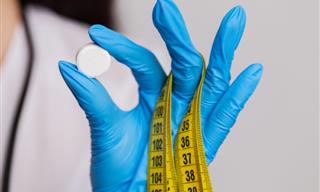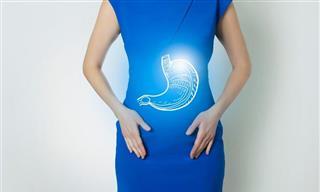Multivitamins are a great way to get a variety of vitamins and minerals. According to John Hopkins Medicine, half of U.S. adults – including 70 % of those age 65 and older – take multivitamins and health supplements regularly. To function properly, the body needs 13 vitamins and 15 minerals. Even a complete diet may not give you all these nutrients. That’s where multivitamins can make a difference.

Research suggests that vitamin deficiencies are commonly associated with chronic diseases, and supplementation can help. Experts say that taking multivitamins can be beneficial when you are stressed, sleep poorly, or don't get enough exercise. To get the most out of your multivitamins, keep these few things in mind:
Related: Can Taking Multivitamins Do More Harm than Good?
1. Take your multivitamin with some fat

Vitamins are classified into two categories: fat-soluble and water-soluble. Water-soluble vitamins include Vitamin C and Vitamin B complex. These vitamins are dissolved in water and absorbed into tissues for immediate use. On the other hand, fat-soluble vitamins, such as K, E, D, and A, are absorbed along with fats and stored in the body's fatty tissues and liver. Fat-soluble vitamins are vital for your vision, bone health, and immune function. They are also great for growth, reproduction, and health, says the National Institutes of Health (NIH).
Therefore, it is advised that fat-soluble vitamins are taken with dietary fats, such as eggs, peanut butter, or avocados, allowing your body to absorb them properly. To enhance vitamin absorption, you can also get a multivitamin containing a fat source, like flaxseed, coconut, or fish oil.
2. Alter your vitamin routine as you age

Our bodies change as we age, and so do our nutritional needs. For example, research shows that people over age 70 need more vitamin D than younger people to prevent bone loss and cognitive decline. Meanwhile, calcium, magnesium, and omega-3 fatty acid supplements are beneficial for people of all ages.
Women of childbearing age should include vitamin B6 in their diet. The CDC says that getting enough folic acid before and during early pregnancy can help prevent birth defects of the brain and spine.
Related: Warning! Read About These Mistakes Before Taking Vitamins
3. Avoid taking your multivitamin after alcohol
While it may be tempting to take multivitamins after a night of drinking, experts warn against it. Excess consumption of alcohol can interfere with the body’s ability to absorb vitamins, such as vitamin B1, B12, folic acid, and zinc. Research has shown that alcohol inhibits the breakdown of nutrients into usable molecules by decreasing the secretion of digestive enzymes from the pancreas.
Furthermore, it impairs nutrient absorption by damaging the cells lining your stomach and intestine and disabling the transport of some nutrients into the blood. Also, let’s not forget that alcohol is devoid of vitamins, minerals, and other essential nutrients.
To give your multivitamin time to be digested, it’s best to avoid taking it a few hours before or after consuming alcohol.
4. Take them at the right time

Each vitamin is absorbed differently and plays a specific role in your body. Therefore, it’s important to take your multivitamins at the right time. Medical News Today reports that vitamins B1, B12, Coenzyme Q10 (CoQ10), and iron produce energizing effects on the body and should be taken during the first half of the day.
Other nutrients such as magnesium, calcium, potassium, and some B-vitamins promote sleep and relaxation and should be consumed in the evening. Furthermore, studies show that calcium and iron shouldn't be taken together, as one hinders the absorption of the other.
5. Try and buy vitamins approved by the U.S. Pharmacopeia (USP)

The United States Pharmacopeia (USP) is a dietary supplement verification program that ensures quality supplements for consumers. “Seeing the USP verified mark on a label indicates that the dietary supplement product has been tested and meets industry standards,” says Marjorie Nolan Cohn, a registered American dietician.
The Cleveland Clinic recommends buying your vitamin supplements only with the USP seal printed on the packaging as it guarantees they have been tested and approved by a trusted laboratory and produced according to FDA Good Manufacturing Practices.
Bear in mind, however, that while the USP stamp assures you of purity, potency, and stability, it doesn’t guarantee the overall effectiveness of the multivitamin.
Related: The ABC of Anti-Inflammatory Vitamins: Which Are the Best?
6. Consult your doctor when taking multivitamins
Before you include multivitamins in your regimen, it is essential to talk to your healthcare provider. They can review any prescription medications you are taking and tell you if there are any potential interactions you should know about. For instance, calcium supplements can interfere with someone’s thyroid medications. Similarly, the blood thinner warfarin hampers the action of vitamin K and prolongs the time it takes to form a clot.
Your doctor will also tell you to be cautious about overdosing, as multivitamins in high quantities can cause damage to your body.
Most importantly, always remember that multivitamins shouldn’t replace a healthy diet. To maintain your overall health, eating a balanced diet rich in fruits, vegetables, whole grains, and lean meat is crucial.
Share this post with all your loved ones
 Go to BabaMail
Go to BabaMail

























































